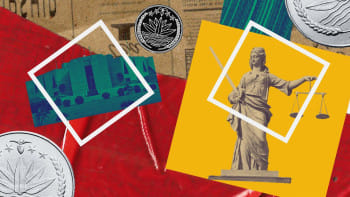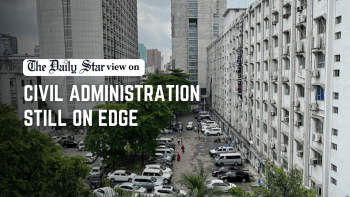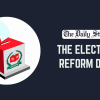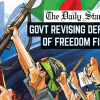Stop political capture of the public sector

The culture of patronage politics that has devastated our nation over the years—fostering corruption, undermining meritocracy, and weakening institutions—begins at grassroots with the capture of public contracts and extortion by political thugs, and culminates with systemic regulatory capture by vested interest groups, all of which serves as an incentive for them to keep working for the party in power. This corrupt cycle seems to have begun again after a brief pause caused by the July-August mass uprising, with the regime change only changing the thugs and their cohorts.
Over the past two-three weeks, we have had a number of reports on how BNP-linked leaders and activists, civil servants, and professional groups have been trying to establish control in various sectors. This suggests that patronage politics may continue to be around even after a political government returns to power, unless political and institutional reforms are undertaken to prevent it. This is deeply alarming.
The latest example has its setting in Nagar Bhaban, which houses the headquarters of Dhaka South City Corporation (DSCC). According to a report by Prothom Alo, BNP-affiliated activists and employees have been trying to establish their dominance through a mix of showdowns, intimidation, assaults, and even extortion, creating a tense atmosphere there. They have their eyes on proceeds and contracts/leasing from various public works, projects, and markets run under the DSCC. Recently, a contractor's representative was beaten over the submission of a tender. Five high-ranking officials were also harassed, and one even beaten publicly. Promotions and placements of officials are also being controlled.
Prothom Alo has earlier reported how BNP-linked individuals forcibly took control of the Shimulia ferry terminal, fish market, and trawler docks in Munshiganj's Louhajanj upazila by allegedly threatening and assaulting legitimate leaseholders. They have established a lucrative extortion racket there, collecting hundreds of thousands of taka daily. We have heard of a similar capture of many other terminals and markets, transport hubs and associations, footpaths, slums, and such public spaces that were previously controlled by or leased out to Awami League-linked leaders.
The question is, what is BNP doing about it? Officially, the party remains committed to preventing such exploitations. Acting Chairman Tarique Rahman on Thursday issued a warning saying that there is no place for criminals and miscreants in the party. Another top leader has been more specific, vowing stern consequences for those indulging in extortion and illegal capture of the public sector. But hardly anything has come of these warnings yet. This means at least two things: either this message is not being delivered strongly enough to grassroots leaders and activists, through swift punitive actions to convey the seriousness of the message, or the party, beyond public condemnations, is still not serious enough about it.
Both scenarios are equally concerning. We urge the BNP leadership to take action matching its strong words. It must prevent its grassroots leaders, professional groups or anyone exploiting its name to establish dominance through exemplary punishment. As the leading party in the country now, BNP has a duty to not just support but also actively take part in the reforms being envisioned by the students and people that toppled the Awami League government. It must help do away with the political culture of yesteryears that has brought nothing but misery for the country.
However, we also need institutional reforms to dismantle this entrenched culture, and for that, comprehensive actions from the interim government are essential.


 For all latest news, follow The Daily Star's Google News channel.
For all latest news, follow The Daily Star's Google News channel. 












Comments